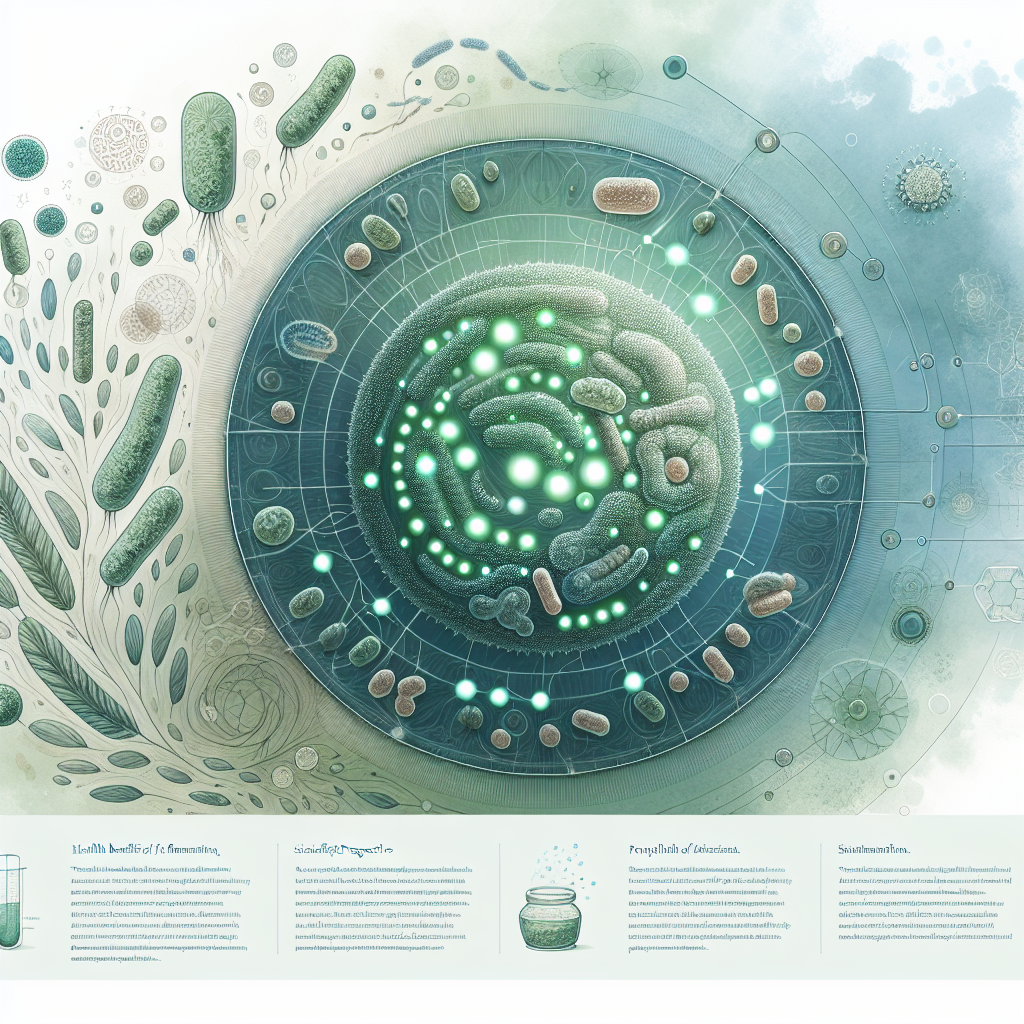### The Health Benefits of Fermented Foods: A Scientific Perspective
The shifting winds of health trends bring new perspectives and diets to the fore every year. One perky trend that seems to have longer sticking power than most is the increased interest in fermented foods. From tangy sauerkraut to tart kefir, fermented foods are gaining traction for their reputed health benefits. But what does science say about this? Let’s delve into it.
—
#### **Fermentation: An Ancient Practice with Modern Benefits**
Fermentation is an ancient practice that humans have employed for thousands of years for food preservation and creating unique flavors. In this process, microorganisms like yeast and bacteria convert sugar into other compounds such as alcohol, acids, and gas, giving fermented foods their distinctive tang.
Recently, however, science has revealed that these fermented delights may also offer a host of health benefits.
—
#### **The Power of Probiotics**
Fermented foods are rich in probiotics. These are beneficial bacteria that play an instrumental role in maintaining gut health. The balance of good and bad bacteria in your gut is significant, as dysbiosis – an imbalance – can lead to issues like inflammatory bowel disease (IBD), obesity, and even mental health disorders.
Numerous studies corroborate the benefit of these bacteria in fermented food. For instance, a study published in the journal “Current Opinions in Biotechnology” claimed that probiotics from fermented foods could enhance gut health, boost the immune system, and reduce the risk of chronic diseases.
—
#### **Boost for Your Immune System**
Our gut is a crucial component of our immune system. In fact, according to a review published in “Clinical Reviews in Allergy & Immunology,” nearly 70% of our immune cells reside in the gut. Probiotics from fermented foods may stimulate these immune cells. It’s not surprising then that a diet rich in fermented foods can help your body fight off infections and diseases.
—
#### **Mental Health Bonus**
Emerging science is also suggesting a profound connection between our gut and our brain, known as the “gut-brain axis.” Research published in the journal “Neurogastroenterology & Motility” underscores how a balanced gut microbiome is associated with better mental health. Consuming fermented foods, which replenish and diversify our gut bacteria, could potentially help manage mental health conditions like depression and anxiety.
—
#### **Enhanced Nutrient Absorption**
Besides all these, fermentation can also increase the bioavailability of nutrients in our foods. A study in the “Journal of Food Science and Technology” reported that fermentation increased the accessible protein content in soybeans, helping the body to absorb more essential nutrients.
—
### **Conclusion**
It appears that our ancestors were onto something when they embraced the process of fermentation. While the taste might take some getting used to, the potential health benefits of fermented foods make them a valuable addition to a balanced diet.
However, as with any diet change, it’s a good idea to have a chat with your healthcare provider before making significant changes. After all, what serves one gut may not serve another.
Remember, slow and steady wins the dietary race, and health is a lifelong journey of beneficial habits, not a quick destination.
—
###### References:
1. Current Opinions in Biotechnology. (2020). The history and science of fermentation: Impact on nutrition, digestion, and waste.
2. Clinical Reviews in Allergy & Immunology. (2019). The gut-immune brain axis.
3. Neurogastroenterology & Motility. (2018). The role of the gut microbiota in mental health.
4. Journal of Food Science and Technology. (2017). The impact of fermentation on the nutritional value of food.
—


